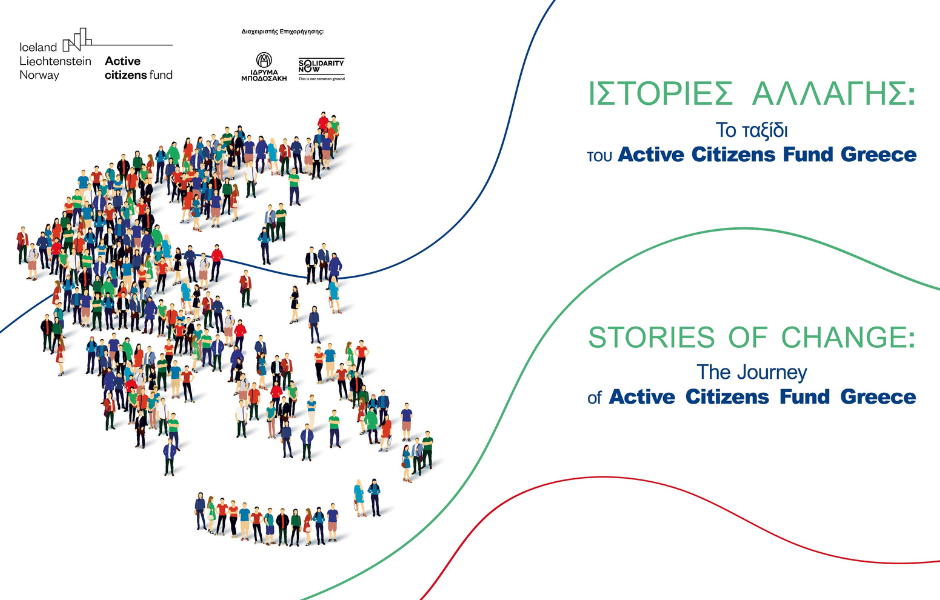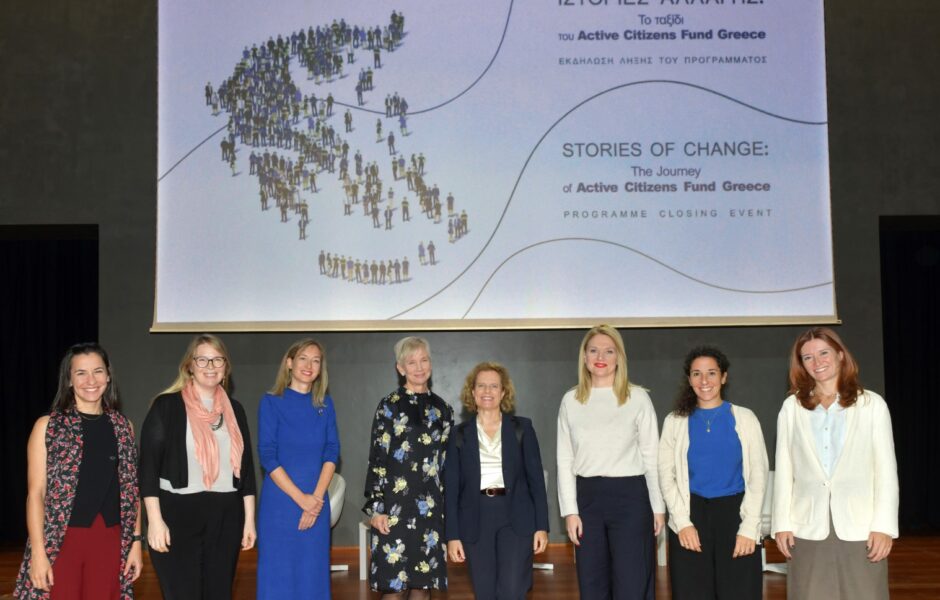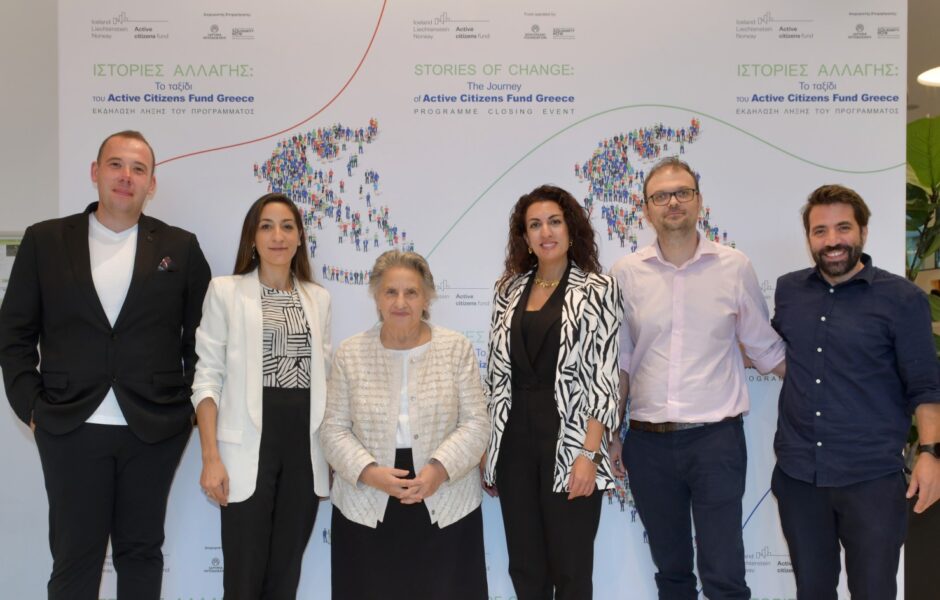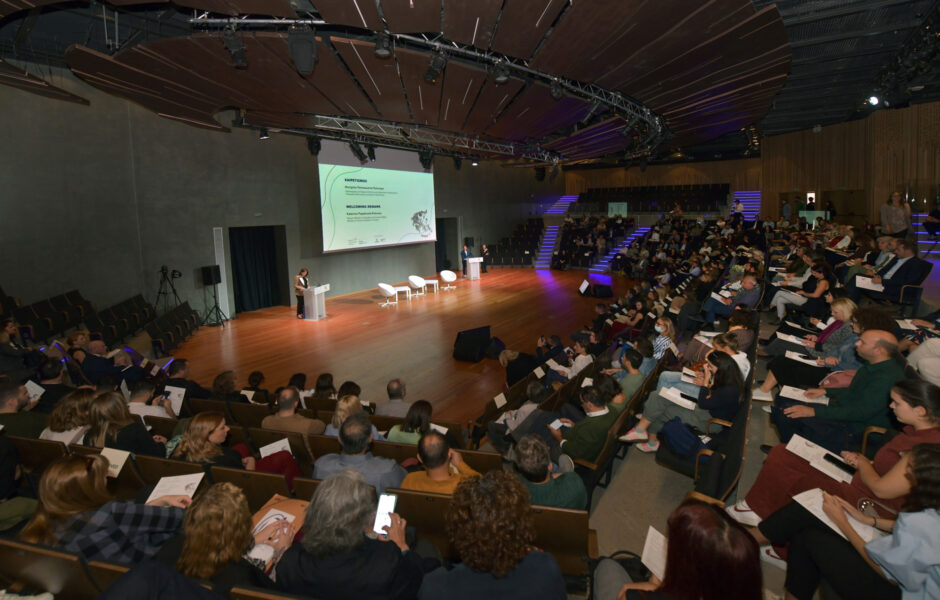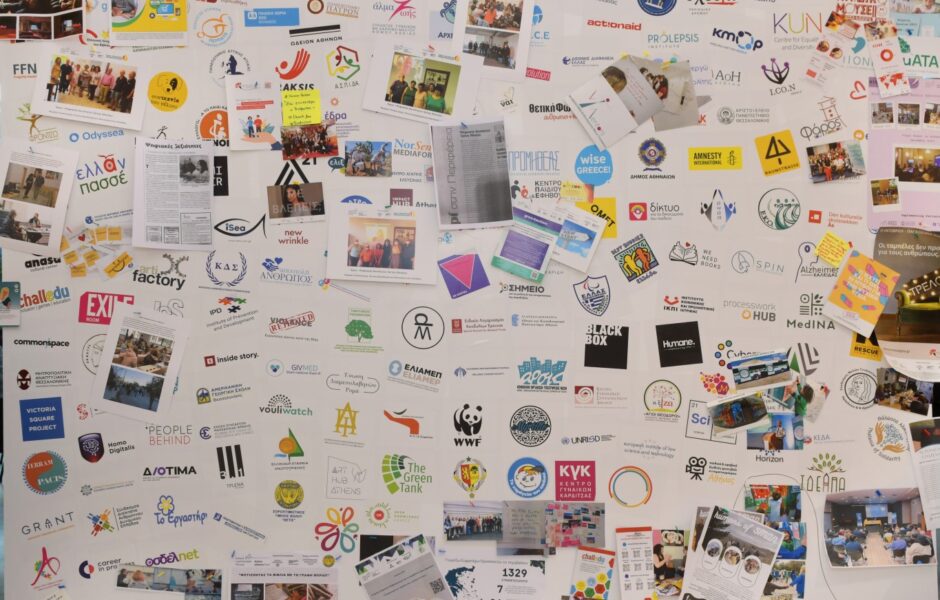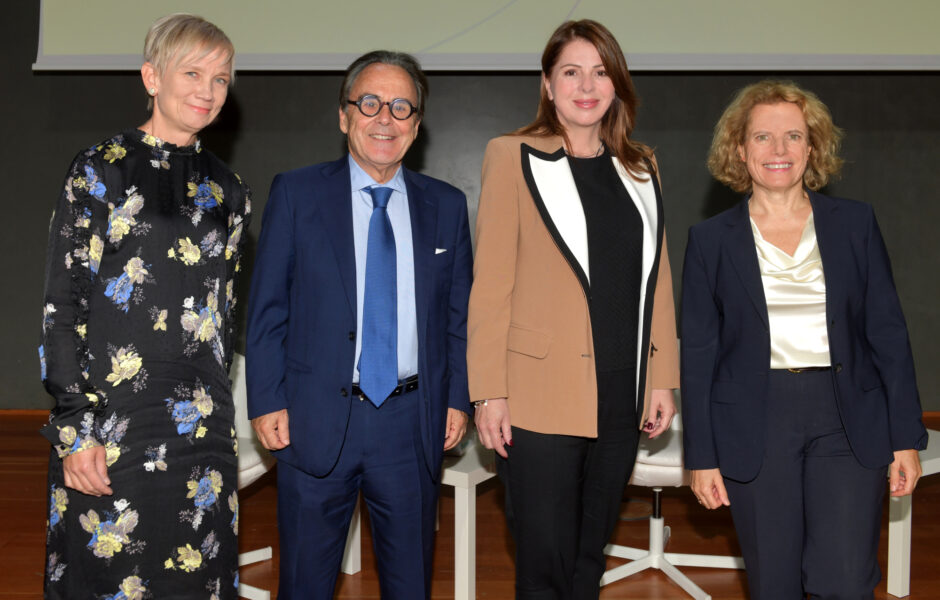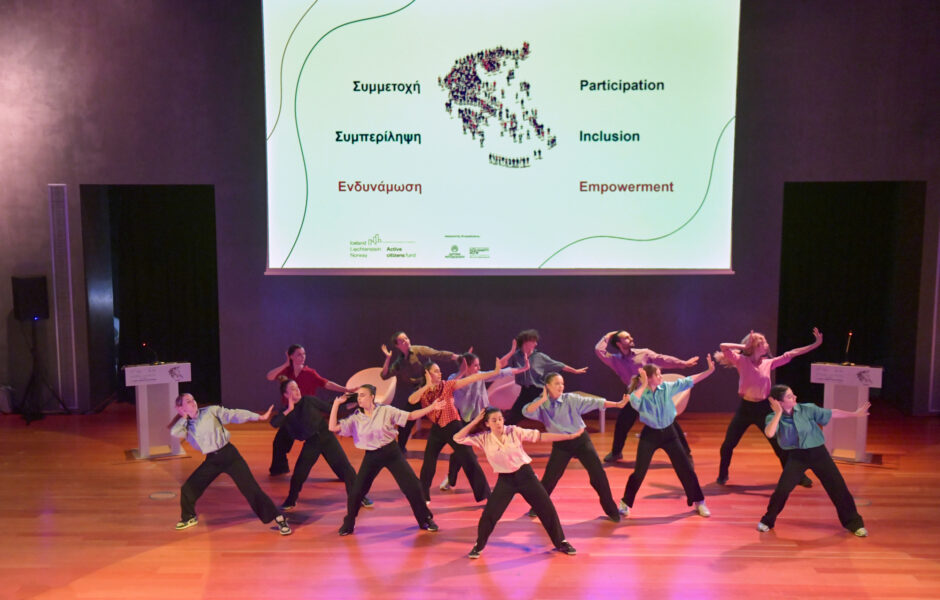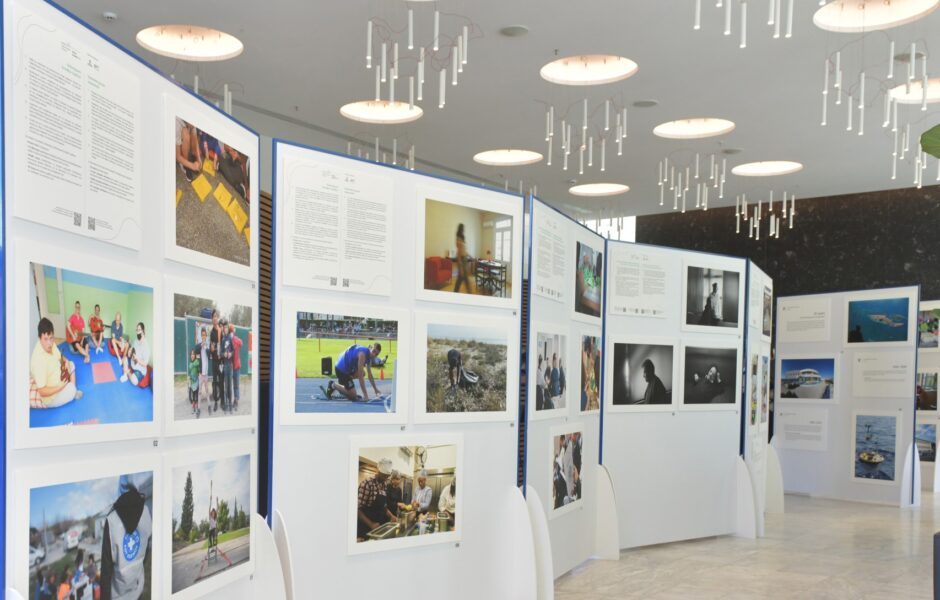Survivors of gender-based violence, people with disabilities and psychosocial difficulties, victims of torture, human trafficking, asylum seekers and refugees, second-generation migrants, Roma, prison inmates, the elderly, LGBTQ+ individuals, people living below the poverty line, students, teachers, parents, guardians, and young people are just some of the groups supported by the Active Citizens Fund Greece programme.
The €15 million Active Citizens Fund Greece, which began in 2019 and concludes today, represents the largest investment ever in Greek civil society. Funded by Iceland, Liechtenstein, and Norway as part of the European Economic Area financial mechanism (EEA Grants), the aim of the programme was to empower civil society, improve its sustainability and highlight its crucial role in promoting democratic processes, increasing citizen participation, and protecting human rights. The Fund Operator for the Active Citizens Fund in Greece was Bodossaki Foundation in consortium with SolidarityNow.
In total 208 entities – including civil society organisations, informal groups, universities and local authorities – were funded through the programme. As a result, 128 projects were implemented in major urban centres such as Athens, Thessaloniki, Patras, Heraklion and Ioannina, as well as in rural, island, and remote areas of Greece, including Epirus, Western and Central Macedonia, Eastern Macedonia and Thrace, the Cyclades, and Northern and Southern Aegean. The programme has directly benefited over 152,000 people, while more than 4.3 million people were reached through 702 awareness-raising activities under the programme about issues related to rights, equality, and good governance.
The projects implemented under the programme were selected from 586 proposals submitted by civil society organisations in response to seven open calls. These projects focused on enhancing citizen participation, strengthening civil society watchdog and advocacy role, defending human rights, promoting gender equality, combating gender-based violence, empowering vulnerable groups, and reinforcing civil society organisations and the sector as a whole.
The success stories and transformative impact of the programme were celebrated during the Closing Ceremony at the Athens Conservatoire on October 22, with civil society representatives and donor country delegates in attendance. The event featured a photography exhibition, documentary screenings, and storytelling sessions. Ambassador Lajla Brandt Jakhelln of Norway, Athina Dessypri, President of the Bodossaki Foundation, and Stelios Zavvos, President of SolidarityNow, shared insights on the programme’s significance and the vital role of civil society.
Ambassador Lajla Brandt Jakhelln:
“If we want Europe to continue being the beacon of democracy and freedom in the world, we need a stronger and more consolidated civil society sector. One that will focus on the core principles of democracy and rule of law, on fighting corruption and on promoting transparency and human rights. For the last 30 years, Norway and Greece have worked together under the EEA Agreement to reduce social and economic inequalities, while strengthening our bilateral relationships based on shared values and goals. Under the new funding period, 159 million euros will be made available to Greece until 2031. 15 million of this will aim to support civil society. We will continue to build on our cooperation, together, for a greener, more competitive and more inclusive Europe.”
Athina Dessypri:
“History has demonstrated that in times of crisis, the role of civil society becomes increasingly vital. Today, as the world confronts numerous challenges, the contribution of civil society to maintaining a healthy democracy—rooted in the values of freedom, equality, the rule of law, and human rights—is more crucial than ever. It is therefore highly significant that the donor countries of the EEA Grants—namely Iceland, Liechtenstein, and Norway—have prioritised civil society through the Active Citizens Fund, dedicating €15 million to this programme.”
Stelios Zavvos:
“The Active Citizens Fund has served as a catalyst for change, providing civil society organisations with the opportunity to grow, empower themselves, and take on a central role in advancing social justice in Greece. The collaboration between SolidarityNow and the Bodossaki Foundation, as grant managers, along with the bilateral partnerships established with the donor countries—Iceland, Liechtenstein, and Norway—have demonstrated that shared values and a common vision for a fairer, more inclusive society can drive real and lasting change.
The results achieved in the Active Citizens Fund Greece thematic areas are significant, and the impact of the projects has been extensive. More than 113,400 people from vulnerable groups benefited from specially designed actions aimed at their empowerment and social integration. Additionally, 14,700 people received training on human rights issues, while over 4,000 public servants participated in capacity-building training for the protection and promotion of human rights.
To foster transparency, accountability, and good governance, the programme supported 53 advocacy campaigns and 44 initiatives for active citizen participation in public life.
The programme also played a crucial role in strengthening bilateral cooperation between Greece and donor countries—specifically Iceland, Liechtenstein, and Norway. A total of 49 initiatives supported cross-border collaboration between Greek organisations and their counterparts in these donor countries, with more than 750 participants.
Moreover, the programme actively promoted regional cooperation among benefiting countries in the EEA, facilitating knowledge exchange between more than 200 Greek and international civil society organisations. This collaboration brought together over 500 participants, encouraging the adoption of best practices and innovative solutions. Notably, a groundbreaking study by the Foundation for Economic and Industrial Research (IOBE) measured, for the first time in Greece, the contribution of civil society to the national economy, with the findings now available online.
Detailed results of the programme can be found on the programme website, here.
Active citizens fund Greece Programme
The Active citizens fund in Greece is supported through a € 15 m grant from Iceland, Liechtenstein and Norway as part of the EEA Grants 2014 – 2021. The programme aims to develop the sustainability and capacity of the civil society sector in Greece, and to strengthen its role in promoting and safeguarding democratic procedures, active citizenship and human rights. The Fund Operator for the Active citizens fund in Greece is Bodossaki Foundation in consortium with SolidarityNow.

